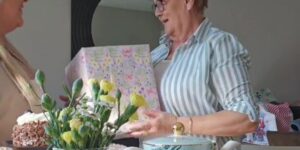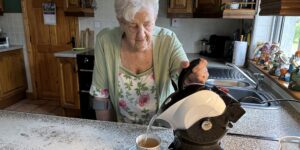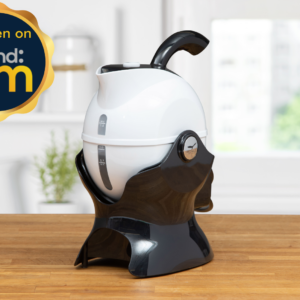When most people hear the words “occupational therapy,” they might picture hospital rehab or specialist clinics. But here in Ireland, much of the vital work of Occupational Therapists (OTs) happens beyond those clinical walls — right in the heart of the community.
Community-based occupational therapy focuses on supporting people to live safely, confidently, and independently at home, especially after illness, injury, or as they grow older. These professionals are the link between medical advice and real-world solutions — and they’re often the reason someone can remain in the comfort of their own home.
We spoke with Aoife, a community OT working across a rural HSE catchment area in the West of Ireland. Her work is wide-ranging, deeply personal, and as she says herself, “no two days are ever alike.”
Early Morning Home Visits: It All Starts With the Kettle
“My day usually starts with the first home visit by 9am,” Aoife shares. “Today I’m meeting a man who was recently discharged from hospital after a bad fall. My goal is to assess how he’s managing at home and how we can make things safer.”
From navigating stairs to preparing a cup of tea, everything matters.
“You’d be surprised how much confidence a person can regain from simply being able to pour their own tea again. It’s never just about the task — it’s about feeling like yourself.”
The Home is Part of the Assessment
Community OTs like Aoife don’t just look at the person — they assess the full environment.
“We look at everything: the lighting, the height of the worktops, what’s in the press, where trip hazards might be. You can’t provide the right solution without seeing the full picture.”
Her clients vary — some are living with arthritis, Parkinson’s, or multiple sclerosis. Others are recovering from stroke or facing the general challenges that come with ageing.
“Some people have family nearby, but many live alone. That’s where community support becomes essential.”
Lunch on the Go, Heart in the Job
“I usually eat in the car — a sandwich and a cup of tea between calls. It’s a chance to clear my head, write up notes, or make a few follow-up calls. It can be emotionally heavy. You’re walking into people’s lives when they’re vulnerable.”
One of her recent cases involved an older woman who was skipping meals because she couldn’t open food tins or carry hot drinks safely.
“To some, those sound like minor things — but they’re huge barriers to daily living. That’s what we’re here to solve.”
When Simple Aids Make the Biggest Difference
We asked Aoife about the role of equipment and aids in her work.
“They’re not the whole answer, but they’re a powerful part of the solution,” she explains. “The right aid, given at the right time, can be life-changing.”
She’s familiar with the Uccello Kettle and has recommended it to several people who struggled with lifting or pouring safely.
“One lady I visited had stopped making tea on her own after a spill. Her daughter got her the Uccello Kettle, and the change was amazing. She told me it gave her back a piece of herself.”
The Admin That Keeps It All Going
After lunch, Aoife might be found coordinating with public health nurses, social workers, or the local primary care team.
“There’s a lot of advocacy in the job — chasing up referrals, pushing for housing modifications, making sure people aren’t forgotten.”
Community OTs in Ireland: Quiet Champions of Independent Living
Community-based OTs are unsung heroes in the Irish health system. They bridge the gap between hospital care and everyday life, enabling people to remain where they most want to be — at home.
“The job can be tough,” Aoife says. “But when someone tells you they’re living easier, or safer, or just feeling more like themselves again — it’s worth every bit of effort.”
As Ireland’s population continues to age, and as more people express the wish to age in place, the role of community occupational therapists will only become more vital.
They’re not just assessing mobility or recommending aids. They’re helping people hold on to independence, one small win at a time.














Leave a Comment